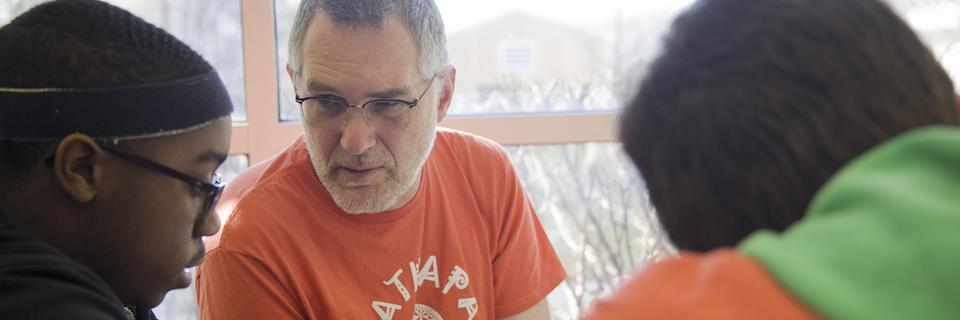Winning the Mega Millions Jackpot? Not Likely. But What If We All Played Together?

A record-setting $1.6 billion Mega Millions jackpot lottery drawing has many across the United States dreaming of mansions, early retirement, or charitable donations.
And that headline belies the odds that the vast majority of players emerge from the drawing with little more than a wallet that is $2 lighter.
Getting the jackpot is pretty simple — pick five numbers between one and 70 and one jackpot number between one and 25. Match them all and win the big prize. If there’s more than one winner, the jackpot is split evenly.
For $2, that probably sounds like a good deal. But Keith Brandt, Ph.D., Rockhurst professor of mathematics, said the odds of someone playing all the right numbers to earn the jackpot are about one and 300 million.
“That’s about equal to the number of people in the United States,” he said. “So imagine playing a game with everyone in the country and you are randomly chosen as the only winner.”
In other words, it’s pretty hard to beat the odds as an individual, but the theory of expected value does give some insight into another way to play and maximize the chances of winning, Brandt said. In the spirit of office lottery pools, one could imagine a scenario in which 302 million different people agreed to each purchase one ticket, play every unique number combination and split the jackpot.
“The team together could exploit the system that way,” he said.
Under this scenario, buying one $2 ticket would guarantee each player a payout — of $5.28. Before taxes. Not exactly life-changing, Brandt said, but enough for a coffee. And they avoid a whole host of other headaches.
“Suppose you win the jackpot, that’s $1.6 billion,” he said. “Top income tax bracket is 32 percent, so the next day you owe $500 million in taxes to the federal government, and for Missouri or Kansas, another $90 million. You’re instantly giving more than a third of it right back.”
On top of that are the non-mathematical factors.
“I would be terrified of being kidnapped or something if I were to win $1.6 billion,” he said.
It’s part of the reason that Brandt said many of the mathematicians he knows aren’t really the lottery type. But if 300 million others want to get that pool together, he could use a chai tea.







